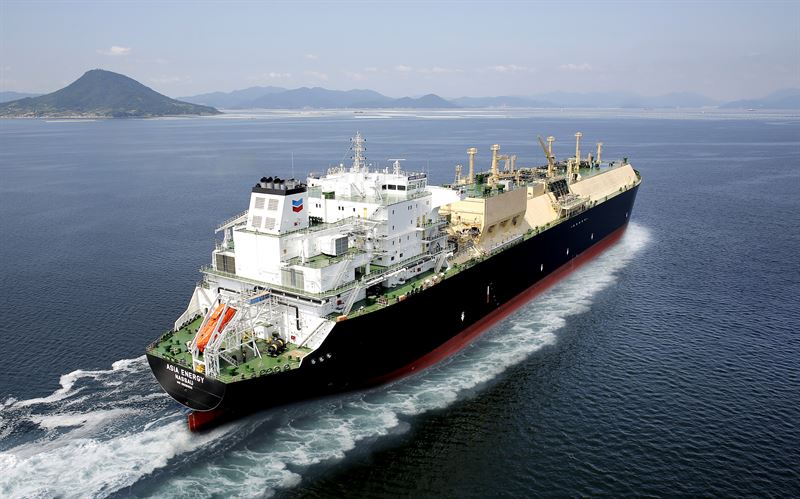Technology group Wärtsilä, in partnership with Chevron Shipping Company LLC plans to convert one engine on six of Chevron Transport Corporation Ltd.’s LNG Carriers from dual-fuel to spark gas operation. The conversions are intended to reduce greenhouse gas emissions by lowering methane slip in support of Chevron Shipping’s broader efforts to reduce the carbon intensity of its operations. This marine industry first was made possible after two years of collaboration between the companies. The order for the first two vessels was booked by Wärtsilä in Q3 2024.
LNG, when burned as a fuel, results in small amounts of methane that may not fully combust leading to methane escaping into the atmosphere, referred to as methane slip. Methane exists in the atmosphere for a shorter time than CO₂ but traps approximately 25–30* times more heat over a 100-year period. Addressing methane emissions is a key part of lowering carbon intensity. Wärtsilä’s 50DF to SG conversion project is designed to modify the engines in service to operate as SG, using spark ignition versus diesel pilot fuel to initiate combustion. This enables a more optimised combustion process, thereby reducing the methane slip and improving efficiency.
This new technology complements Wärtsilä’s extensive portfolio of solutions aimed at reducing methane emissions from vessels. With nearly three decades of experience in LNG technology, Wärtsilä is providing market leading performance both with the dual fuel flexibility provided by the DF engine, as well as with the single fuel SG engine.
Tags: Chevron, CNG/LNG, Wartsila



Recent Posts
Port of Brisbane Unveils Vision 2060 to Drive Smarter, Cleaner, and More Connected Future
Wärtsilä to Deliver Hybrid Propulsion Systems for Vertom Group’s New Low-Emission Vessels
Latvian port receives electric Konecranes Gottwald Mobile Harbor Crane
Sustainable Ocean Economy Vital for Human Development, Says UNDP at UN Ocean Conference
Green Hydrogen Costs in India Could Drop by 40%, Says IEEFA-JMK Report
Cavotec Secures €1.55 Million Shore Power Contract for Port of Antwerp-Bruges
APM Terminals and SANY Marine sign landmark agreement to accelerate decarbonisation
The Port of Gothenburg takes big step towards shore power connection for container and car/RoRo vessels